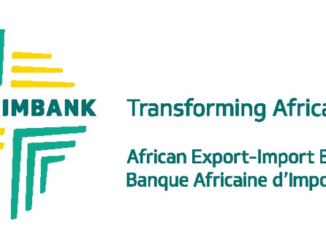
Egypt has long been recognized as a strategically important country with a rich history, diverse culture, and abundant resources. In recent years, the government has undertaken significant reforms to improve the business environment, attract foreign direct investment, and support economic growth. This comprehensive guide will explore Egypt’s investment landscape, focusing on three key investment frameworks: the Internal Investment Regime, Free Zones, and Investment Zones. The article will provide essential information about the legal frameworks, available incentives, and the most promising sectors for investment, offering valuable insights for business leaders seeking to capitalize on Egypt’s vast potential.
I. Internal Investment Regime: Creating a Supportive Environment for Businesses
Overview
The Internal Investment Regime, governed by Investment Law No. 72 of 2017, aims to create a more attractive investment climate in Egypt by offering incentives, guarantees, and protections to investors. This framework is intended to promote domestic and foreign investments across various sectors, contributing to Egypt’s economic growth and development.
Main features
The Internal Investment Regime includes several key features:
1. Guarantees and protections: The Investment Law safeguards investments from nationalization and confiscation, ensuring that projects cannot be expropriated or sequestered except through judicial proceedings.
2. Incentives and exemptions: The law offers numerous incentives and exemptions for investors, including tax reductions, customs exemptions, and benefits related to land allocation, labor, and infrastructure.
3. Investment dispute resolution: The law established a dedicated investment dispute resolution mechanism, streamlining and expediting the process of resolving investment-related disputes.
4. Streamlining investment procedures: The law simplifies investment procedures, reduces bureaucracy, and enables easier access to information through the creation of a one-stop-shop for investment services.
5. Promoting local and regional development: The Investment Law seeks to promote investment in underdeveloped regions of Egypt, encouraging businesses to contribute to local and regional development.
Quantifiable Incentives Offered by Egypt’s Internal Investment System
1. Reduced Corporate Tax Rates
Egypt’s standard corporate tax rate is 22.5%. However, under the Investment Law, businesses operating in specific sectors or regions may be eligible for a reduced tax rate. While the exact reduction can vary based on the project and its location, investors might expect a tax reduction of up to 50% in some cases.
2. Customs Duty Exemptions
The Investment Law provides customs duty exemptions for the import of capital goods, such as machinery and equipment, required for investment projects. The exemptions may cover up to 100% of the customs duty, which can range from 5% to 40% of the goods’ value, depending on the product category.
3. Land and Real Estate Incentives
The Egyptian government may offer preferential terms for the allocation of land or real estate to promote investment in targeted sectors or regions. While the exact discounts can vary, investors might expect land or real estate prices to be reduced by up to 25% in some cases.
4. Financing and Credit Facilities
Investment projects in priority sectors or areas may be eligible for financing and credit facilities with preferential terms. These terms could include interest rate reductions of up to 2% to 4% below standard rates, extended repayment periods of up to 7 to 10 years, or more flexible collateral requirements.
Non-Quantifiable Incentives Offered by Egypt’s Internal Investment System
1. Investment Guarantees and Protections
The Investment Law provides various investment guarantees and protections, such as protection against expropriation and access to international arbitration in case of disputes. These incentives are qualitative and cannot be quantified directly.
2. Streamlined Bureaucracy
Egypt’s Investment Law aims to simplify and streamline bureaucratic procedures for investors, including the establishment of a “one-stop shop” for investment-related services. While the exact time and cost savings may vary depending on the specific investment project, the overall objective is to reduce bureaucratic hurdles and promote a more efficient investment environment.
II. Free Zones: Promoting Export-Oriented Industries
Overview
Free zones in Egypt are governed by Investment Law No. 72 of 2017 and its Executive Regulations, with oversight provided by the General Authority for Investment and Free Zones (GAFI). Free zones are areas within the state’s territory that are subject to special provisions on taxation, customs, and finance, designed to promote export-oriented industries.
Authorized Activities
All types of investment activities are permitted within free zones, with the exception of industries related to national security, wine and alcoholic beverages, fertilizers, manufacturing of iron and steel, petroleum refining, liquefaction, manufacture and transport of natural gas, and energy-intensive industries.
Advantages, Guarantees, and Exemptions
Free zones offer a range of benefits to investors, including:
a. Capital and profit transfer: Free transfer of invested capital and profits abroad.
b. Investment freedom: Freedom to select the field of investment and the legal form of projects.
c. Free pricing: Free pricing of products and profit margin.
d. No limits on invested capital: There are no minimum or maximum limits for invested capital (for public free zone projects only).
e. Nationality of capital: No restrictions with regards to the nationality of the capital’s owner, where a foreign investor can be the sole owner of the capital or can have any share in the investment (excluding projects set up in Sinai).
f. Residency facilities: Providing foreign investors with residency facilities and granting foreign workers residence permits as requested by the project.
Projects operating in free zones enjoy several guarantees and exemptions, such as protection from nationalization, confiscation, and sequestration, as well as exemptions from custom duties, sales taxes, and other taxes throughout the project period. Projects are also exempt from VAT on supplies from the local market.
Private Free Zones and Public Free Zones
Egypt currently hosts nine public free zones, which are well-equipped with necessary facilities and infrastructure (roads, electricity, sewage stations, water networks, and telecommunications). Investment areas in these zones are allocated based on an annual rent system.
Private free zones are unique establishments that represent one or more projects exercising similar activities, located outside the public free zone vicinity. These zones may be owned or rented by the investor.
III. Investment Zones: Specialized Areas for Targeted Industries
Overview
Investment zones are geographical areas with specific surface areas and boundaries, allocated for one or more specialized investment activities and ancillary activities. Investment zones are established through a Prime Minister decree, with a designated developer responsible for the zone’s management, development, and promotion.
Technological Zones
Technological zones are a type of investment zone specialized in the Information and Communication Technology (ICT) industry. Projects operating within technological zones enjoy numerous incentives, such as exemptions from taxes and customs duties on tools and machines, as well as the special investment incentives granted by Investment Law No. 72 of 2017.
Egypt’s investment landscape offers numerous opportunities for those seeking to capitalize on the country’s strategic location, growing market, and abundant resources. The Internal Investment Regime, Free Zones, and Investment Zones provide a diverse array of incentives and benefits, making Egypt an attractive destination for investments across various sectors. By leveraging these frameworks and the extensive support provided by the government, investors can access lucrative opportunities, contribute to Egypt’s economic growth, and tap into the vast potential of this dynamic market.
For an overview of the investment map where you can find the location of each investment zones, refer to the GAFI website here : Investment Opportunities (investinegypt.gov.eg), which also includes additional information and ressources.



